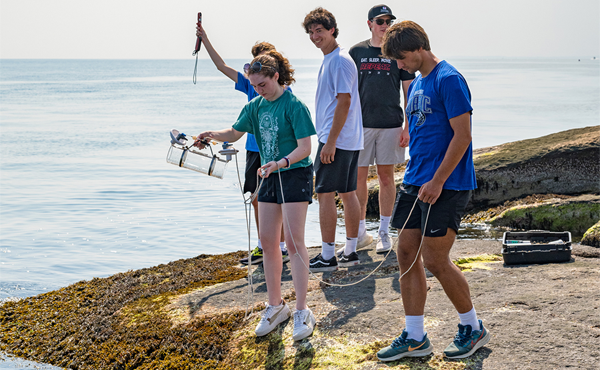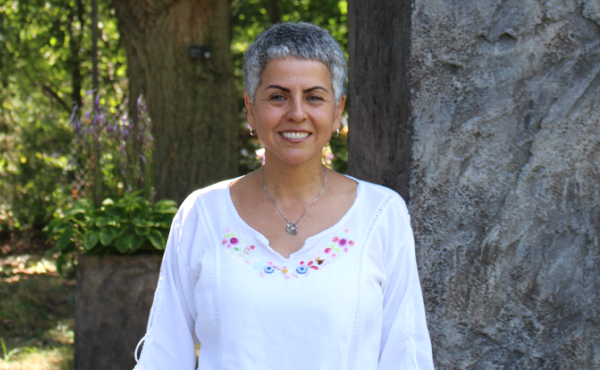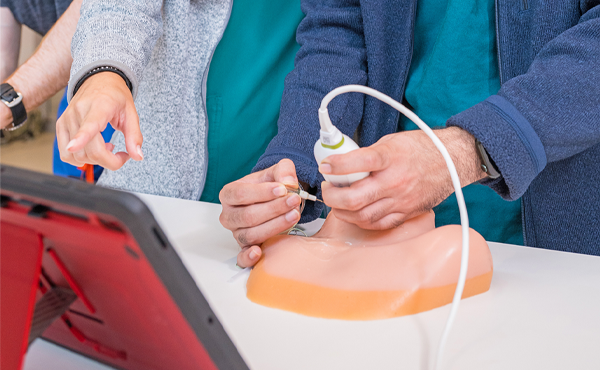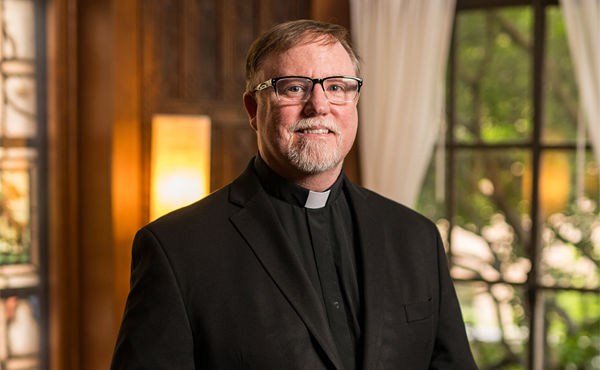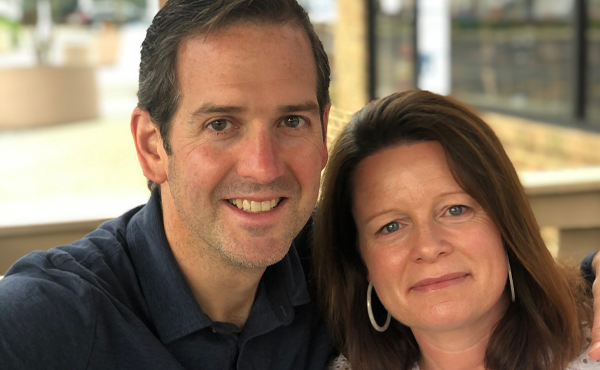The Center for Climate, Coastal, and Marine Studies heralds a new era of faculty-student research, interdisciplinary collaboration, and community engagement.
By organizing these efforts within a center, we're elevating the initiative, encouraging students to work on projects with multiple faculty members in different disciplines, and strengthening support for student research in this field.
— Robert Nazarian, PhD, Associate Professor of Physics
Situated on the coast of Long Island Sound with direct access to its varied ecosystems, Fairfield University is ideally positioned for the newly unveiled Center for Climate, Coastal, and Marine Studies. In a distinctive, immersive setting for faculty and student researchers, the new center embodies the University’s commitments to advancing interdisciplinary knowledge and addressing urgent environmental challenges facing our world today.
The creation of the new hub for environmental research began with a vision to establish a center that fosters collaboration and integrates faculty expertise across disciplines, said associate professor of physics Robert Nazarian, PhD. “Since arriving at Fairfield, I’ve learned of many faculty members conducting inter- and trans-disciplinary work in the area of climate, coastal, and marine studies,” he said. “Their research, often with students, has been presented in some of the top venues of their respective fields. Given Fairfield’s strong faculty expertise in this area, I wanted to explore how we could support and amplify this scholarship.”
Dr. Nazarian is special assistant to the associate vice provost for research and scholarship, and will serve a three-year term as the center’s inaugural director. “By organizing efforts within a center, we’re elevating the initiative, encouraging students to work on projects with multiple faculty members in different disciplines, and strengthening support for student research in this field,” he noted.
Across the United States, interest in climate studies is on the rise. According to a 2023 study conducted by Inside Higher Ed and College Pulse, 81 percent of college students are concerned about climate change, and 74 percent have an expressed desire to participate in initiatives focused on sustainable practices.
Over the past several years at Fairfield, 117 undergraduate and graduate students have conducted research projects led by faculty in the areas of climate, coastal, and marine studies. Faculty and student-faculty research have resulted in more than 70 peer-reviewed articles and book chapters, 55 conference presentations, and a book. Of these, Fairfield students were co-authors on 26 peer-reviewed publications and 26 conference presentations.
Collaborations in environmental studies with faculty have led to remarkable student outcomes. Brody Matijevic ’25, Carissa Agostino ’23, and James Vizzard ’23 co authored studies led by Dr. Nazarian on projections of extreme precipitation over the, Northeast and Northern Mexico. Named a 2022 Goldwater Fellow, Vizzard is now a PhD student at the University of Chicago. “Doing research with Dr. Nazarian gave me the opportunity to find a passion for making new discoveries,” said Vizzard. “Because of this passion, I am now pursuing graduate studies and applying my experience in using mathematical models to biological systems.”

Summer research led by associate physics professor Robert Nazarian, PhD, and biology professor Shannon Gerry, PhD, took place in July on Outer Island—the southernmost of the Thimble Islands off the coast of Branford, Conn. in the Long Island Sound.
In the English Department of the College of Arts and Sciences, Humanities Fellow Amber Aslaigh ’22 worked with Professor Elizabeth Petrino, PhD, on her project “The American Oceanic Sublime,” which studied how Lydia Sigourney and Emily Dickinson portray the experience of the sublime through an environmental lens. “My research project, in conjunction with my Women, Gender & Sexuality Studies capstone, encouraged me to consider different literary ideas through a more interdisciplinary approach,” said Aslaigh, whose work earned her a full scholarship for PhD studies at the University of Indiana. “The insights in critical thinking and analysis that I gained as an undergraduate continue to help me consider works of literature through various lenses at the graduate level.”
Dr. Petrino predicts that The Center for Climate, Coastal, and Marine Studies will offer even greater opportunities for students and faculty to explore unique approaches to literature and culture. “Fairfield University has demonstrated its commitment to understanding the human experience through the launch of this interdisciplinary center,” she said. “Students and faculty will be able to address major social and scientific concerns through a variety of lenses in exciting new ways.”
Diverse Disciplines to Tackle Climate Change
Headquartered in Donnarumma Hall on the North Benson campus, a primary goal of the Center for Climate, Coastal, and Marine Studies is to promote inter- and trans-disciplinary research that bridges the gaps between various fields of study. “I wear the hat of climate scientist and physical oceanographer at Fairfield,” said Dr. Nazarian, “but there are also faculty in anthropology looking at how climate change impacts migration. We have faculty in the School of Education and Human Development looking at climate anxiety and climate literacy. There are faculty looking at sea-level rise economics. It’s a cross-section of the whole university.”
The center will support the research of close to 30 full-time faculty members from diverse disciplines across all of Fairfield’s professional schools and the College of Arts & Sciences, according to a key collaborator on the initiative, Margaret McNamara McClure, PhD, associate vice provost for research and scholarship, and professor of psychological and brain sciences. “This interdisciplinary approach ensures that our research is comprehensive and impactful,” she said.
Alongside Fairfield students conducting summer research this year, Dr. Nazarian and Charles F. Dolan School of Business economics professor William Fernando Vasquez Mazariegos, PhD, collaborated with alumna Jennifer Trudeau ’09, PhD, on a climate science and economics project to analyze Connecticut beach-goers’ willingness to pay for adaptation and mitigation efforts to address rising sea levels at coastal state parks.
“Real-life problems are complex and their solutions don’t lie in a single discipline,” said Dr. Vasquez Mazariegos. “They require a good understanding of climate sciences, engineering, politics, and economics, among other aspects.”
From an economic standpoint, Dr. Vasquez Mazariegos noted that their project is important to coastal tourism and the recreational services provided to visitors and Connecticut residents. “Our research may yield support for protecting policies that provide low-cost access to beaches.”
Many of the new center’s initial research themes will concentrate on both the local and global implications of the effects of climate change on the Long Island Sound region — an area critical to environmental and community health. “By concentrating on the Long Island Sound,” said Dr. McClure, “we are not only helping to protect a vital ecosystem, but also providing valuable insights that can inform broader climate policies and practices.”
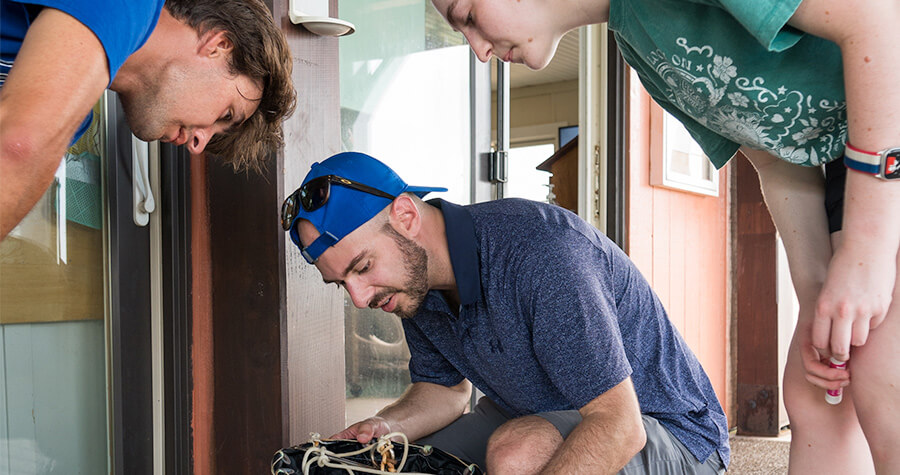
Underwater flora beneath the surface of Long Island Sound. (l-r) Mattia Speretta, Dr. Robert Nazarian, and Madeleine Birardi ’27, take a closer look after trawling for plankton.
New Research Initiatives and Funding Opportunities
The Center for Climate, Coastal, and Marine Studies plans to foster a vibrant research culture on campus through a monthly seminar series featuring a diverse mix of speakers. Undergraduate stipends for summer research will be offered, some specifically designated for Fairfield Bellarmine students. Additionally, faculty summer stipends will be awarded to bolster independent projects and student-engaged research. Mini grants and individual grants will also be available.
Down the road, the center plans to gradually increase the availability of stipends and grants, and create a teaching postdoctoral scholar position, which will rotate among senior faculty every two years. As the center grows, there are aspirations to establish an endowed Chair in Climate, Coastal, and Marine Studies position and initiate a sabbatical research opportunity at a partner institution.
Community partnerships will help expand the center’s impact beyond the academic sphere. “Our collaborations with local organizations will enhance our research and provide practical benefits to the community,” said Dr. McClure. “By working together, we can address local environmental challenges and share our findings with a broader audience.”
This collaborative approach reflects Fairfield’s commitment to environmental stewardship, and the Vatican’s encyclical Laudato Si’: Care for Our Common Home, in which Pope Francis urges a reevaluation of our responsibilities to protect creation and address environmental harm caused by modernization, consumerism, and inequality, while upholding human rights.
“Jesuit universities have adopted Laudato Si’ as a pillar, essentially expressing how we care for our common home,” said Dr. Nazarian. “By focusing on research and integrating Jesuit values, we are setting Fairfield apart as a leader in environmental scholarship and impact.”
